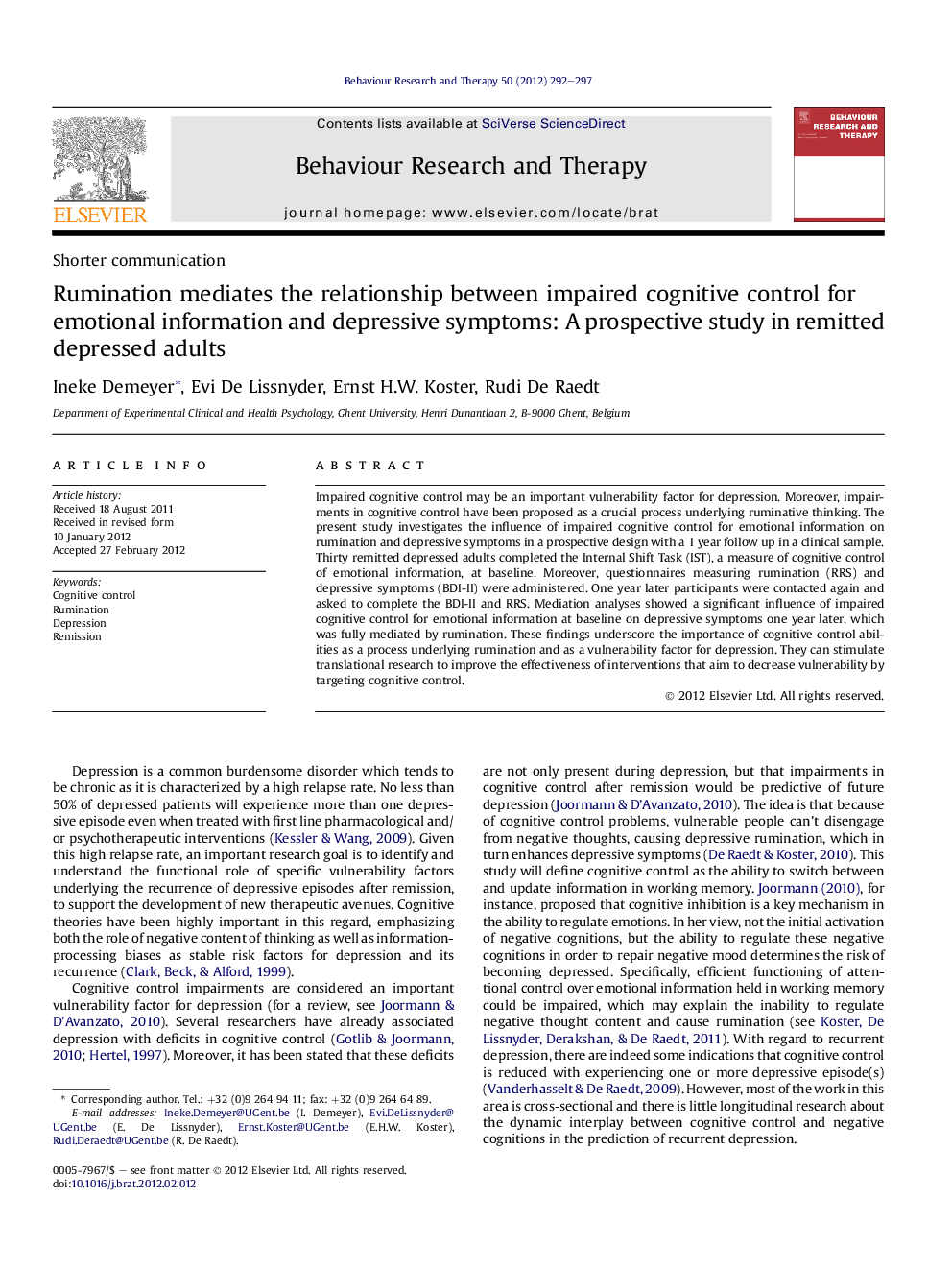| Article ID | Journal | Published Year | Pages | File Type |
|---|---|---|---|---|
| 901987 | Behaviour Research and Therapy | 2012 | 6 Pages |
Impaired cognitive control may be an important vulnerability factor for depression. Moreover, impairments in cognitive control have been proposed as a crucial process underlying ruminative thinking. The present study investigates the influence of impaired cognitive control for emotional information on rumination and depressive symptoms in a prospective design with a 1 year follow up in a clinical sample. Thirty remitted depressed adults completed the Internal Shift Task (IST), a measure of cognitive control of emotional information, at baseline. Moreover, questionnaires measuring rumination (RRS) and depressive symptoms (BDI-II) were administered. One year later participants were contacted again and asked to complete the BDI-II and RRS. Mediation analyses showed a significant influence of impaired cognitive control for emotional information at baseline on depressive symptoms one year later, which was fully mediated by rumination. These findings underscore the importance of cognitive control abilities as a process underlying rumination and as a vulnerability factor for depression. They can stimulate translational research to improve the effectiveness of interventions that aim to decrease vulnerability by targeting cognitive control.
► Cognitive control is a vulnerability factor for relapse in depression. ► We examined this in remitted depressed adults using a prospective design. ► Impaired cognitive control was able to predict depressive symptoms one year later. ► The link between cognitive control and depression is mediated by rumination.
